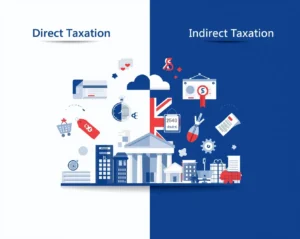Financial planning is usually conceived as merely a nitty-gritty dollars-and-cents, budget-and-investment exercise. Useful as those are, however, real financial success involves considering how money enables the life you desire to live. Building wealth is not only about accumulating assets for the purpose of accumulating assets—it’s about making your financial objectives consistent with the lifestyle you want to lead. Including personal values and dreams in your money planning, financial strategies are more significant and enduring.
Table of Contents
ToggleDefining Lifestyle Objectives
Prior to creating a financial plan, it is important to determine what lifestyle is to you. To some, it may be retirement at an early age, a flexible schedule, or traveling frequently. To others, lifestyle goals may be owning a home, good education for their kids, or the ability to enjoy cultural pursuits and hobbies without worrying about money. These goals are the beacon in creating short-term and long-term financial planning.
Understanding what you want your life to be like is what provides you with purpose and direction. Without it, it’s easy to chase after elusive wealth goals that won’t necessarily yield true satisfaction. It being your money plan in support of those goals means wealth becomes a tool to bring satisfaction and not a goal.
Creating Wealth With Intention
Once lifestyle objectives are determined, the next thing is creating wealth-building strategies that complement them. It is about keeping long-term investments in balance with money to enjoy life today. Though retirement funds, real estate investments, and diversified portfolios provide for tomorrow, saving for today’s desires means you won’t sacrifice the present for the future.
Conscious wealth building also entails creating quantifiable objectives that both herald monetary and individual success. For example, attaining a savings goal may also signify that you can now have that dream vacation or upgrade your living space. By associating monetary advancement with concrete lifestyle improvements, the process becomes more appealing and inspirational.
Utilizing Financial Planning in Everyday Decisions
The money vs. lifestyle equilibrium is not only about milestone buys or expensive items—it infiltrates daily money decisions. Discretionary spending, paying off debt, or saving all play into how well your budget works with your envisioned lifestyle.
Consider how your daily habits align with your overall objectives. If relaxation and travel are your passion, investing in part of your budget on experiences such as seeing new places or weekend escapes to nearby places ensures that your lifestyle objectives are taken care of. Such mindful spending prevents money plans from being limiting and, thus, makes them liberating.
Professional advice can also assist in honing in on these decisions. Having experts like financial planners Brisbane locals trust on your side gives you an outside point of view and makes sure that your financial strategies still fit into your big picture goals. Their experience can close the gap between prudent wealth accumulation and the freedom to enjoy yourself.
Lifestyle Experiences as Motivation
One of the most effective advantages of harmonizing lifestyle objectives with wealth objectives is the inspiration that they generate. As you can see the way in which your financial austerity leads to adventure and opportunity, the accumulation of wealth is less an abnegation and more of a reward.
Consider where travel falls into this kind of thinking. Saving for lifestyle financial goals may be saving for a beach holiday. Being able to travel to beautiful places and search for the top places to stay in Noosa, for example, is the reward process. Each saving increment not only produces long-term security but also brings you closer to the type of experiences that enrich your life.
Getting the Right Balance
The key to balancing lifestyle and wealth is achieving the equilibrium between present enjoyment and future security. Excessive focus on too much instant pleasure can compromise long-term security, but too much focus on the future alone can leave you feeling deprived in the present. Balance ensures that your financial strategy is both serving personal satisfaction and long-term success.
This balance must be reevaluated and recalibrated regularly. As your own goals shift, so must your financial arrangements. Flexibility allows you to adapt to changes in personal circumstances, family makeup, and overall economic conditions without sacrificing the principles that guide your own financial path.
Conclusion
Wealth creation is so much more satisfying when attached to lifestyle aspirations. Identifying what matters most to you, making conscious plans, and integrating these into daily decisions creates a financial plan for today’s happiness and tomorrow’s security. By linking money as a tool for wealth creation with money as a tool for fulfillment, you ensure that your financial future will be tied to the life you want.





